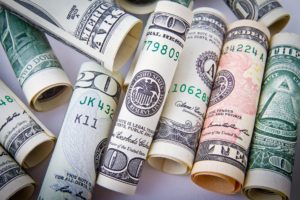“Don’t tell me what you value. Show me your budget, and I’ll tell you what you value.” –Joe Biden

We’ve always counted our pennies, but retirement has taken that mindset to a new level. Living on a fixed income involves considerable research, lifestyle adjustment, and a little soul-searching to determine the long-term value of bigger purchases and the actual necessity of smaller ones.
To many, we’re cheapskates. When we eat out, we split an entree and order an extra side. Our top priority for a vehicle is the miles per gallon it gets rather than the status it reflects (we’re driving our third Nissan Altima for its sixth year and blatantly brag about it 39 mpg on the highway). We buy new middle of the line appliances on sale that have the best reviews and never purchase the extended warranty–or regret it. I have no qualms about buying nearly new and gently worn quality clothing off of Poshmark, although I have to strong arm my husband to buy new clothes–(he’s wearing the same shirt in his current driver’s license picture that he was wearing when his old license expired in 2012).
And as penny-pinchers, we have significant regret about the money we’ve squandered.
For example, when we were buying “hobby stocks” after the 2008 recession, we blew $1000 on Eddie Bauer stock at 50 cents a share and rather than selling when it rose to a dollar, we got greedy. It tanked to 0.001 cents a share. We eventually admitted defeat and reported a loss.
And, now that we’ve discovered T-Mobile and Hulu, we regret the thousands of dollars we’ve wasted on “big name” cell phone and cable companies, reluctantly consenting to their frequent rate increases year after year for mediocre service.
But most significantly, we’re angry that we bought into the Keurig hype. We held out longer than our friends, but Christmas of 2014 we purchased our first Keurig and two consecutive machines at approximately $120 each. Each ceased working after 18 months in spite of our dutiful attention to descaling and new filters. Each is the landfill–not to mention several thousand little Keurig pods we contributed to the world’s plastic problem at approximately $4800. (Math: 48 months multiplied by 30 =1440 days multiplied by 5 cups of coffee per day =$7200 cups of coffee divided by 18 pods per Keurig box = 400 boxes multiplied by $12 per box = $4800.)
Our saving grace after the Keurig fiasco? A year ago, we dug our old Walmart coffeemaker out of storage. It’s at least ten years old and still perks away, twice a day, with Aldi’s Specially Selected German Roasted Coffee we purchase for $4.99 at approximately 14.2 cents a cup. (Math: 1 tablespoon = 1 cup of coffee x 35 tablespoons per 17.5 ounce package = $4.99 divided by 35 = 14.2 cents per cup).
There’s nothing like a good, steaming cup of German roasted coffee at 14.2 cents per cup to put a happy spin on our fixed-income lifestyle.
